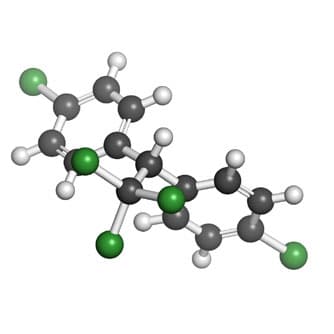DDT (dichloro-diphenyl-trichloroethane) was used extensively as an insecticide in the 1940s, but has been banned in the United States since 1972 after scientists linked the compound to wildlife health and environmental concerns. DDT is still used in other countries to combat the spread of malaria. Jason R. Richardson, from Rutgers Robert Wood Johnson Medical School (New Jersey, USA), and colleagues found elevated levels of the DDT metabolite, DDE, in blood samples of 86 patients with Alzheimer’s disease (average age 74 years), as compared to 79 control patients (average age 70 years), from the University of Texas Southwestern Alzheimer’s Disease Center (Texas, USA) and the Emory University Alzheimer’s Disease Center (Texas, USA). Specifically, DDE level was 3.8 times higher in those patients diagnosed with Alzheimer’s disease. Positing that: “Both DDT and DDE increase amyloid precursor protein levels, providing mechanistic plausibility for the association of DDE exposure with [Alzheimer’s Disease],” the study authors submit that: “Identifying people who have elevated levels of DDE and carry an APOE e4 allele may lead to early identification of some cases of [Alzheimer’s Disease].”
Banned Pesticide Linked to Alzheimer’s Disease
Jason R. Richardson; Ananya Roy; Stuart L. Shalat; Richard T. von Stein; Muhammad M. Hossain; Dwight C. German; et al. “Elevated Serum Pesticide Levels and Risk for Alzheimer Disease.” JAMA Neurol.. January 27, 2014.
RELATED ARTICLES




